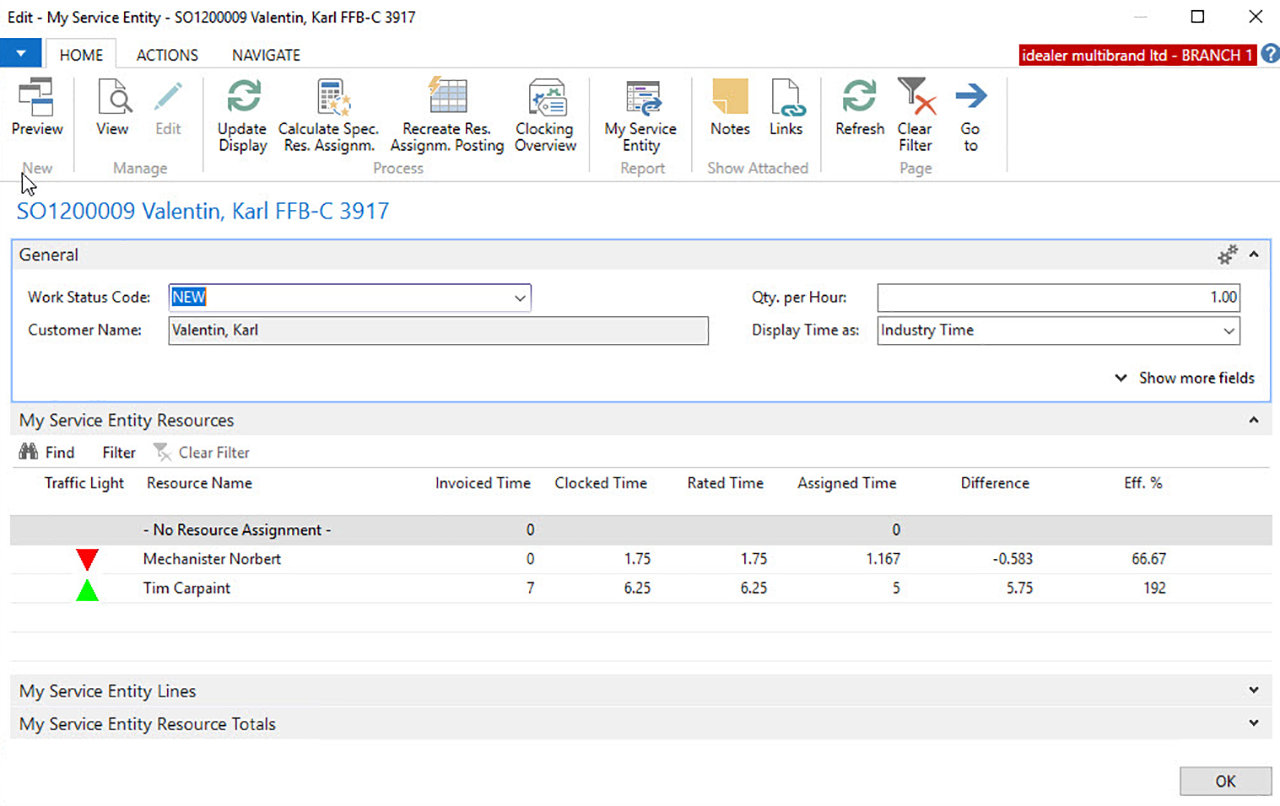Mechanic's efficiency in incadea.dms

Nowadays, modern DMS has to satisfy various functional criteria required by car dealerships. One of the most demanded functions is calculating mechanic's efficiency. I think the best way to start this topic is to explain proper DMS terminology.
Today you can find various definitions of efficiency, mainly depending on the business area where this term is used. Unfortunately, there are no universal DMS terms for it, and we must use DMS jargon.
Mechanic's efficiency measures the quality of work done with less time-wasting using fewer resources and spending less money.
In the short term, it means doing service jobs right and fast.
In DMS, you can measure the mechanic's efficiency according to the times clocked and a portion of invoiced time. Some OEMs (Original Equipment Manufacturers) prefer to use other, more complex calculation types. For instance, the calculation is based on the times clocked and a portion of standard time (Vorgabezeit).
This calculation type is essential for reporting and preferable in the case of handling warranties and service contracts. In incadea.dms, we can handle both calculation types. Service advisors can see the calculation of mechanic's efficiency from particular service documents directly, using the MyService Entity page:

Or we have recently added(*) a new reporting page; Service Performance Analyses, which provides advanced calculations and flexible filters concerning Mechanics Efficiency:
In addition, we added for service advisors a set of active warnings to validate results if the efficiency in particular service order is below a defined value (for example,>75%).
Have you heard about the efficiency factor or efficiency ratio? It is another constructive calculation pattern we applied for incadea.dms as well.
So let's assume mechanics or technicians have different performance levels according to their skills, qualifications, knowledge, and experience. In such cases, the efficiency factor can be considered. For an example, see the table below:

Here we can see performance levels of mechanics and technicians with different efficiency factors. This is done; for instance, to have a level of an expert granted, you have to be a special one because according to the rules above, 100 % rated efficiency (rank of an expert) means 125% efficiency of rank a senior. Similar to that, you can implement explicit preconditions for juniors to become seniors.
All the details, calculation types, and patterns one must consider in DMS to make the efficiency calculations perfect.
I hope that my article was insightful.
Looking forward to your feedback, and we are genuinely interested in your opinion on it.
Dr. Juraj Hanus
Product Manager DMS | juraj.hanus@incadea.com